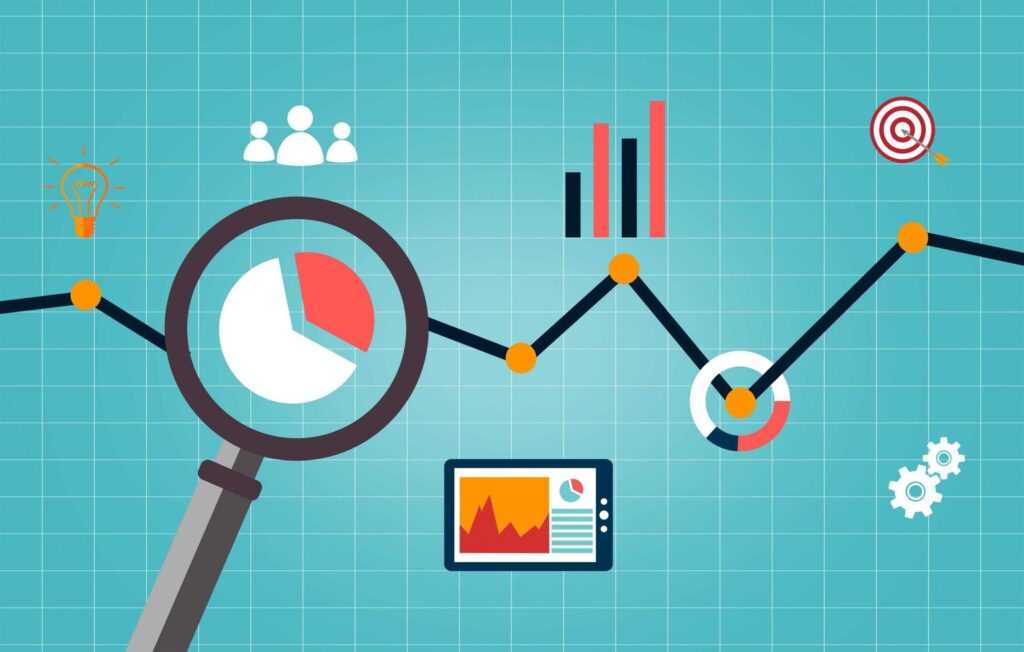
In the ever-evolving landscape of digital marketing, where precision and adaptability are paramount, the implementation of robust analytics tools is not just a strategy—it’s a necessity.
Measuring the success of your marketing endeavors through analytics:
This is akin to navigating with a finely tuned compass; it not only tells you where you are but guides you to where you want to be. As we delve deeper into the multifaceted realm of marketing analytics we can ask how it can be a transformative force for your specialized products and services.
Comprehensive Analytics Implementation: Beyond the Basics
While tracking basic metrics is essential, a comprehensive analytics implementation goes beyond the surface level. It involves setting up advanced analytics tools that can provide a nuanced understanding of user behavior, source attribution, and the customer journey. Looking into granular data points, such as time spent on specific pages or the effectiveness of individual marketing channels. We help you gain insights that forma foundation of informed decision-making.
Unveiling the Customer Journey: Insights Beyond Numbers
Analytics isn’t just about numbers; it’s about unraveling the intricate tapestry of the customer journey. By employing tools that offer a holistic view of the customer experience, you can trace the footsteps of your audience from the first interaction to conversion. Understanding touchpoints and the sequence of actions that lead to a conversion equips you with the knowledge to optimize each stage of the journey for maximum impact.
Conversion Rate Optimization: Turning Clicks into Conversions
Conversion rates are the lifeblood of any marketing strategy. Analyzing these rates provides insights into the effectiveness of your campaigns and the persuasiveness of your offerings. Implement A/B testing to experiment with different elements of your campaigns, from ad copy to landing page design. By fine-tuning these components based on analytical findings, you can systematically elevate your conversion rates and maximize the return on your marketing investment.
User Behavior Analysis: Navigating the Digital Landscape
Understanding how users interact with your digital assets is akin to holding a compass that points towards user preferences. Analytical tools allow you to analyze user behavior, from the pages they visit to the actions they take. Identify patterns, such as frequently visited pages or preferred content types, and leverage this information to tailor your marketing strategies to align seamlessly with user expectations.
Customer Segmentation: Personalizing the Experience
Analytics empowers you to move beyond generic marketing approaches by facilitating customer segmentation. By categorizing your audience based on demographics, behavior, or preferences, you can tailor personalized campaigns that resonate with specific segments. This personalized approach not only enhances customer engagement but also strengthens brand loyalty by delivering relevant content and offers.
Social Media Engagement Metrics: Unleashing the Power of Social
In the era of social media dominance, tracking engagement metrics on platforms like Facebook, Instagram, and Twitter is indispensable. Analyze likes, shares, comments, and click-through rates to gauge the effectiveness of your social media campaigns. Understanding which content resonates with your audience on social platforms enables you to refine your content strategy and optimize your social media presence for maximum impact.
Attribution Modeling: Deciphering the Impact of Channels
Attribution modeling is the compass that guides you through the labyrinth of marketing channels. It helps you discern the contribution of each touch point in the customer journey, providing clarity on which channels are most effective in driving conversions. Armed with this knowledge, you can allocate resources strategically, optimizing your budget for the channels that yield the highest returns.
Adapting Strategies with Real-Time Analytics: Agility in Action
The real-time nature of analytics allows for agile marketing strategies. By monitoring metrics as they unfold, you can identify trends, capitalize on emerging opportunities, and swiftly address any challenges. Real-time analytics transform your marketing approach from a static plan to a dynamic, responsive strategy that evolves in sync with the ever-changing digital landscape.
Goal Tracking: Aligning Analytics with Business Objectives
Setting clear goals is the foundation of a successful analytics strategy. Define key performance indicators (KPIs) aligned with your business objectives, whether it’s increasing sales, expanding market share, or enhancing brand awareness. Regularly evaluate your performance against these goals, adjusting your strategies based on analytical insights to stay on course towards achieving your overarching business objectives.
Data Visualization: Transforming Complexity into Clarity
While data is abundant, its true value lies in its interpretation. Utilize data visualization tools to transform complex analytics into clear, actionable insights. Graphs, charts, and dashboards offer a visual narrative that facilitates quick comprehension, enabling stakeholders at all levels to grasp the impact of marketing strategies and make informed decisions.
In conclusion:
The implementation of analytics is not just a technical aspect of marketing; it’s a strategic imperative. Beyond the numerical metrics lie profound insights that can shape the trajectory of your specialized products and services. By embracing the power of analytics, you equip yourself with a compass that not only guides your marketing efforts but propels your brand towards sustained success in the ever-evolving digital landscape.
Contact Us Today
